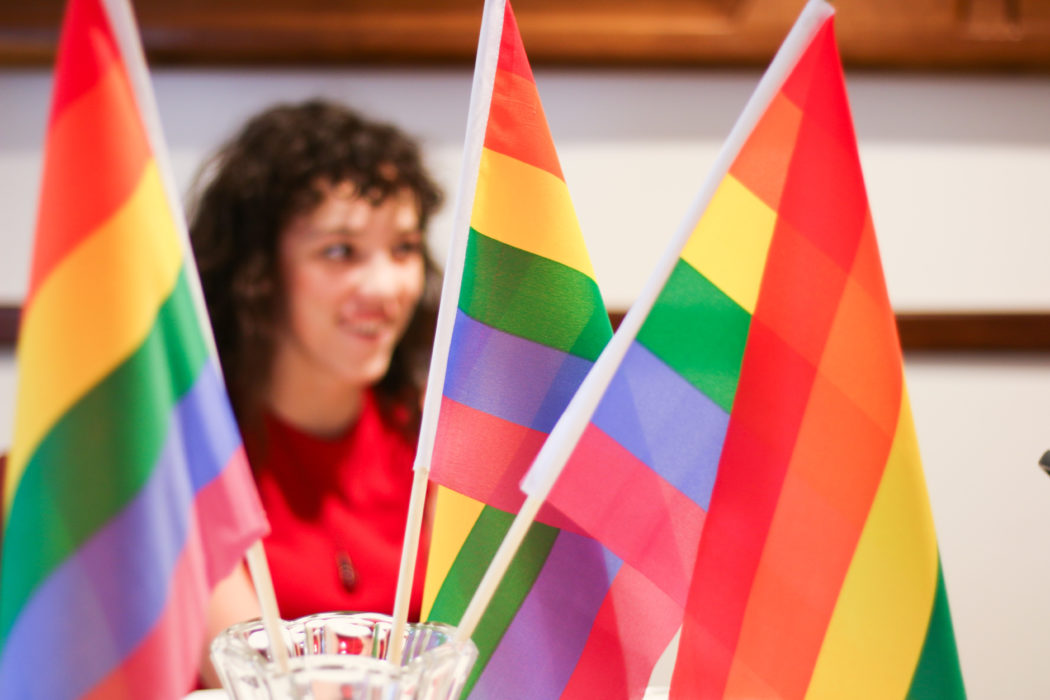USU students react to change in LGBT policy of LDS church
The Church of Jesus Christ of Latter-day Saints released a change on April 4 to allow children whose parents identify within the LGBT community to be baptized without approval from leaders of the church. Formerly, these children were not able to be baptized before the age of 18.
Daniel Sykes, a member of the OUTSpoken Panel within the Access and Diversity Center, a group that seeks to educate others about diverse thought and culture, said the previous policy first given in 2015 had a big impact on his life. He ultimately had to leave the church and says he felt shocked when the policy did change.
“When it came out I felt like the last five years of my life had been almost erased, because I wouldn’t have been excommunicated under this new policy,” Sykes said.
Chase Webb a student who is involved in the Access and Diversity Center, also talked about how he felt back in 2015, when the policy kept children from getting baptized if they had LGBT parents.
“I didn’t love the idea, but at the time I was a member of the church wholeheartedly,” Webb said. “Even though it was uncomfortable for me I found reasons to be OK with it.”
Sykes said he always hoped the policy would change.
“I never thought it would be this soon that things would start to shift in a more positive direction,” he said.
Once the policy changed, there were a lot of different reactions people had both in and out of the church. Webb also added said“there is not a single right reaction to the policy change.”
Many people are happy about it, and some not so much.
Gray Burton also identifies within the LGBT community and said he feels that it was never a good policy and that the church changing the policy is not progress,.
“They pulled it away, pretended like it never happened, and didn’t apologize for it,” he said.
Amidst the confusion and pain the previous policy has caused, many who are a part of the LGBT community said they were disappointed church leaders did not talk more about the policy change during their bi-annual general conference, where most policy changes and important announcements are typically made. Instead it was released a few days prior through a press release.
“The biggest issue with it is that when you instigate that policy and that policy causes so much pain, and then you just take it back without apologizing and you validate it through divinity,then you are allowing some of the members to stay in the same mental state that they were in,” said Webb.
Laceigh Kuss, a student that sings in the choir of the church’s local institute, explained her view on the policy.
“I think it’s great LGBTQ parents are allowed to be baptized into Christ’s church,” Kuss said.“Christ loves each of us equally and a child shouldn’t be excluded from receiving blessings because of a something their parents have chosen.”
Jonanthon Mott, another student who regularly attended institute, said that the policy strengthened his belief that God loves all of his children.
“There are members of the LGBTQ community that decide to stay in the church and have decided that is how they remain happy, and that’s beautiful for them,” Webb said “Everyone has a different reaction to it.”
@harleyTbarnes
harley.barnes@aggiemail.usu.edu


Both the ban and the reversal are stated as ‘Policy,’ but both have been ascribed as inspired and very specifically too, as ‘revelation.’ Note President Nelson’s words in talking about the ban previously:
“We met repeatedly in the temple in fasting and prayer and sought further direction and inspiration.
And then, when the Lord inspired His prophet, President Thomas S. Monson, to declare the mind of the Lord and the will of the Lord, each of us during that sacred moment felt a spiritual confirmation. It was our privilege as Apostles to sustain what had been revealed to President Monson. Revelation from the Lord to His servants is a sacred process. And so is your privilege of receiving personal revelation.”
Then suddenly it’s reversed? Ask yourself the question: ‘Who is likely to have got it wrong – God or these men?’ Not the slightest embarrassment, apology or shame. The leaders at the top of the Mormon church have demonstrably shown they are far less inspired to lead others, than the man next door.